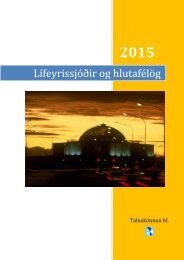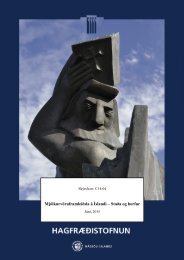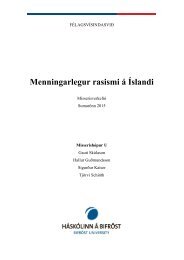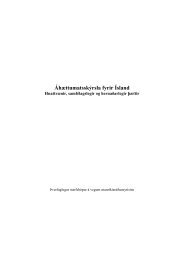Create successful ePaper yourself
Turn your PDF publications into a flip-book with our unique Google optimized e-Paper software.
WORLD REPORT 2016<br />
HUMAN RIGHTS WATCH<br />
cal exams, which included touching their genitals. Shortly after the medical<br />
exams, the hijras’ names were exposed in a newspaper article that declared<br />
them impostors because they were “really men.” The 12 were denied their employment<br />
positions and report increased harassment from neighbors.<br />
Key International Actors<br />
In June, Bangladesh and India signed a border agreement which allowed the two<br />
countries to exchange small land enclaves; prior to the agreement, people living<br />
in the enclaves had been effectively stateless, many without legal title to their<br />
property.<br />
Influential bilateral partners, including the United States, United Kingdom, and<br />
India failed to press for an end to government repression of the political opposition<br />
and civil society. These and other countries welcomed the government’s efforts<br />
to curb extremist groups but failed to demand proof or challenge its claims<br />
that opposition political parties were engaged in “terrorism,” a claim it used to<br />
justify attacks on opponents.<br />
The US Department of Justice funded and trained an internal investigations program<br />
within RAB, but the program produced no human rights prosecutions or<br />
convictions, and the US said little publicly to signal the importance of RAB accountability.<br />
India pledged in 2012 to prosecute members of the Border Security Force for serious<br />
abuses against illegal Bangladeshi migrants crossing the border, but made<br />
little progress in 2015.<br />
After intense international and national scrutiny following the collapse of the<br />
Rana Plaza factory complex in April 2013, two large international cooperative<br />
agreements–one involving largely European companies (Bangladesh Accord)<br />
and the second involving largely North American companies (Alliance)–pledged<br />
to conduct fire and safety inspections across all factories they use in<br />
Bangladesh. However, when the accord pushed for labor law reforms, the government<br />
insisted that the accord’s mandate was restricted to safety inspections.<br />
The US refused to reinstate Bangladesh’s GSP plus status, arguing that it had<br />
not made sufficient improvements in labor sector reforms.<br />
Belarus<br />
President Aliaksander Lukashenka released on humanitarian grounds six opposition<br />
figures who had been imprisoned on politically motivated charges, but the<br />
overall human rights situation in Belarus in 2015 did not improve.<br />
The death penalty remains in use. Officials pressure and arrest human rights activists<br />
and critics on spurious charges. Authorities regularly harass independent<br />
and opposition journalists. Legislative amendments further restricted freedom of<br />
expression, in particular Internet freedom.<br />
Observers deemed the October presidential elections insufficiently transparent<br />
and flawed due to significant irregularities with vote counting. While Belarus<br />
held its first human rights dialogue with the European Union since 2009, authorities<br />
continued to refuse cooperation with the United Nations special rapporteur<br />
on Belarus. In a positive development, in September, Belarus signed the Convention<br />
on the Rights of Persons with Disabilities but has yet to take the necessary<br />
steps to become a full party to the treaty.<br />
Death Penalty<br />
Belarus remains the only European country to use the death penalty. In 2015, the<br />
country took no steps to introduce a moratorium or to abolish it. In April, at the<br />
Council of Europe’s Parliamentary Assembly, a Belarusian parliamentarian<br />
stated that Belarus is “ready to discuss the issue of the abolition of the death<br />
penalty with the Council of Europe.”<br />
In July, an appeals court in a closed hearing upheld the March death sentence of<br />
Siarhei Ivanou, 21, for the murder of a young woman. In November, a regional<br />
court sentenced Ivan Kulesh to death for the murder of three women.<br />
Arrests and Harassment of Human Rights Defenders<br />
and Critics<br />
The authorities continue to routinely use arbitrary detentions, searches, and interrogations<br />
to harass government critics.<br />
112<br />
113










